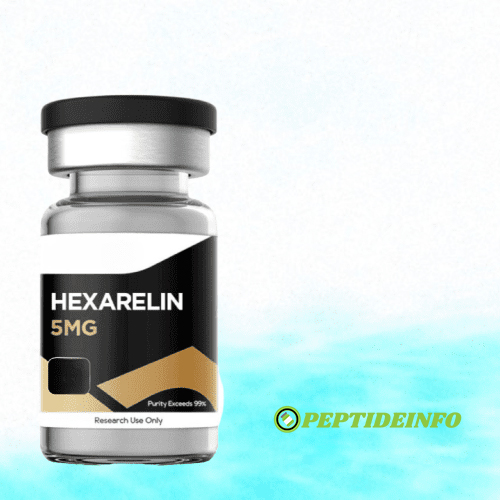Hexarelin is frequently sought out for its marked effects on fat loss and muscle-building. Its ability to affect insulin sensitivity, energy production, and lean muscle growth makes it an attractive compound for researchers wishing to enhance the body composition of their subjects.
Hexarelin for Fat Reduction
Hexarelin is known to activate the CD36 receptor, which is responsible for fatty acid uptake, conversion, and distribution [6]. Studies have shown that the action of hexarelin on CD36 improves the conversion of fat to energy within adipocytes while also increasing the production of cellular mitochondria [7]. This enables subjects to release excess visceral fat and utilize it for energy.
Another way hexarelin aids in fat reduction is by improving insulin sensitivity, which is correlated with successful weight loss and maintenance [8]. Again because of its affinity at the CD36 receptor, hexarelin has been shown to improve the body’s response to circulating insulin, allowing blood glucose to be disposed of or used for energy efficiently [9].
It is worth noting that even lean individuals can experience abnormal fat distribution, suboptimal fat metabolism, and unfavorable blood lipid profiles. These subjects can still benefit from hexarelin therapy as the peptide may improve all aforesaid markers independent of its effect on fat loss [9].
Hexarelin for Muscle Growth
Hexarelin-induced pulsatile growth hormone release encourages the body to achieve a desirable lean mass ratio [10]. Growth hormone is vital for lean tissue growth, and there is a compounding effect on lean mass gain and retention over time when GH therapy is combined with consistent resistance training [11].
Similar to its mitochondrial production within adipocytes, hexarelin has been shown to increase mitochondria in rat skeletal muscle cells along with promoting healthy cell turnover. This effect was maximized by providing stimulus to the muscle through weight training [12]. With more exercise, more lean mass, and less body fat, the body produces more GH in response to hexarelin treatment and is more sensitive to that GH release [13].
Hexarelin for Heart Health
There are numerous cardiovascular applications of hexarelin. One of these may be aiding cardiac function during bypass surgery.
In one study, 24 male patients with coronary artery disease underwent bypass surgery. During surgery, the patients received one of four intravenous treatments: placebo, GH-releasing hormone, recombinant human GH, or hexarelin. Certain cardiac performance biomarkers were monitored to assess the benefits of each treatment.
Only the subjects treated with hexarelin showed favorable changes in wedge pressure, (Left ventricular ejection fraction) LVEF, cardiac index, and cardiac output. Additionally, hexarelin left heart rate and systemic vascular resistance index unchanged, and elicited a minimal elevation in levels of GH. The researchers concluded that hexarelin could benefit patients undergoing bypass surgery because of its selective activation of GHS-Rs within the cardiovascular system [14].




